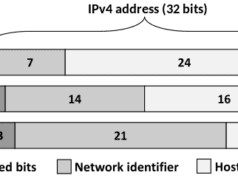In today’s world, where the workplace is continually evolving, remote work has transcended the status of a mere trend to become a fundamental necessity. The shift towards flexible working arrangements has led businesses to lean heavily on remote teams to sustain productivity and adaptability. Yet, this transition underlines the vital need for robust IT support to uphold both productivity and security in these new working environments.
In this blog post, we’ll explore the role of managed IT services in supporting remote workforces and how they contribute to a seamless and secure work environment.
The Remote Work Revolution
Before we dive into the nuances of managed IT services, it’s important to recognize the growing wave of remote work. The conventional 9-to-5 office model is giving way to more flexible, balanced work-life approaches. From home offices to coffee shops and co-working spaces, remote work is redefining our work habits and environments.
The Challenges of Remote Work
The shift to remote work, while beneficial, is not without its hurdles. Key among these are ensuring productivity and security levels comparable to in-office setups. Remote workers often encounter technical difficulties, face heightened cybersecurity risks, and require immediate IT assistance. Addressing these challenges calls for efficient and effective IT solutions.
Enter Managed IT Services
Managed IT services emerge as the backbone supporting the remote work paradigm. These services extend beyond traditional IT support, offering proactive, ongoing care for an organization’s IT framework. In the realm of remote work, managed IT services are crucial in addressing the complexities faced by a geographically dispersed workforce. They ensure not only the smooth functioning of day-to-day operations but also fortify cybersecurity measures, crucial in the era of remote work.
1. Proactive Monitoring and Maintenance
One key aspect of managed IT services is proactive monitoring. Instead of waiting for issues to arise, these services employ advanced monitoring tools to identify potential problems before they impact productivity. This proactive approach ensures that remote employees experience minimal downtime, translating to enhanced overall efficiency.
2. Seamless Collaboration Tools
In the realm of remote work, collaboration is paramount. Managed IT services help organizations implement and optimize collaboration tools, fostering communication and teamwork among remote teams. From video conferencing platforms to project management tools, the right IT services streamline collaboration, making remote work feel just as connected as working side by side in an office.
3. Robust Cybersecurity Measures
With the increase in remote work, the threat landscape for cybersecurity has expanded. Managed IT services take a comprehensive approach to cybersecurity, implementing robust measures to protect sensitive data and systems. From endpoint protection to regular security audits, these services ensure that remote workforces can operate securely, safeguarding both the organization and its employees.
4. Scalability and Flexibility
One of the standout features of managed IT services is their scalability. As businesses grow or adapt to changing circumstances, these services can easily scale to meet evolving needs. This scalability is particularly beneficial for remote workforces, where flexibility is key. Whether adding new users, implementing additional security measures, or integrating new technologies, managed IT services provide the agility required for a dynamic remote work environment.
The Human Element: Personalized IT Support
While the technical aspects of managed IT services are crucial, the human element cannot be overlooked. Remote employees need a support system they can rely on, and managed IT services deliver just that. The availability of personalized IT support ensures that individuals can quickly address issues, receive guidance, and feel supported in their remote work endeavors.

The Cost-Efficiency of Managed IT Services
Contrary to common misconceptions, implementing managed IT services for remote workforces can be a cost-effective solution. By outsourcing IT management, organizations can reduce overhead costs associated with in-house IT teams while gaining access to a wealth of expertise. This cost-efficiency is particularly appealing for small and medium-sized businesses looking to maximize resources and focus on their core operations.
Conclusion: A Secure and Productive Future of Remote Work
As the remote work trend continues to shape the future of the workplace, the role of managed IT services becomes increasingly vital. These services not only ensure the seamless operation of remote workforces but also contribute to the overall security and productivity of an organization.
In embracing managed IT services, businesses empower their remote employees with the tools, support, and security measures necessary to thrive in the digital age. The synergy of advanced technology and a human-centric approach creates a work environment where individuals can excel, collaborate, and contribute to the success of their organizations, regardless of their physical location. As we navigate the evolving landscape of work, managed IT services stand as a beacon, guiding us toward a secure and productive future of remote work.
Featured Image by Firmbee from Pixabay




